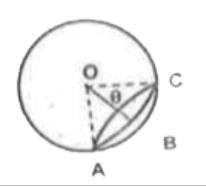In the transpiration pull theory, what causes the tension that leads to lifting of the water column?
Step-by-Step Solution:
1. Understanding Transpiration Pull Theory: The transpiration pull theory explains how water is transported from the roots to the leaves of a plant. It was proposed by botanist Henry Dixon in 1939.
2. Process of Transpiration: Transpiration is the process through which plants lose water in the form of vapor from their leaves. This loss of water creates a negative pressure or tension in the plant's xylem.
3. Role of Xylem: The xylem is the vascular tissue responsible for conducting water from the roots to the leaves. When water vapor is lost during transpiration, it creates a pull that helps lift the water column upward through the xylem.
4. Cohesion of Water Molecules: Water molecules exhibit cohesion, which is the attraction between water molecules. This cohesive force helps maintain the integrity of the water column in the xylem, preventing it from breaking.
5. Hydrogen Bonds: The strong cohesive force between water molecules is due to hydrogen bonds. These bonds form between the hydrogen atom of one water molecule and the oxygen atom of another, creating a strong attraction that holds the water molecules together.
6. Resulting Tension: The tension created by the loss of water during transpiration, combined with the cohesive forces between water molecules, allows for the continuous upward movement of water through the xylem. This tension is essential for lifting the water column from the roots to the leaves.
7. Conclusion: Therefore, the tension that leads to the lifting of the water column in the transpiration pull theory is caused by hydrogen bonds between water molecules.
Final Answer: The tension that leads to the lifting of the water column in the transpiration pull theory is caused by hydrogen bonds between water molecules.
---
Topper's Solved these Questions
- BOOK - ICSECHAPTER - TRANSPORT IN PLANTS EXERCISE - REVIEW QUESTIONS (Short answer type questions)25videos
TRANSPORT IN PLANTS
- BOOK - ICSECHAPTER - TRANSPORT IN PLANTS EXERCISE - REVIEW QUESTIONS (Long answer type questions)16videos
TRANSPORT IN PLANTS
- BOOK - ICSECHAPTER - TRANSPORT IN PLANTS EXERCISE - REVIEW QUESTIONS (Differentiate between the following)12videos
TRANSPORT IN PLANTS
- BOOK - ICSECHAPTER - THE LIVING WORLD EXERCISE - Ncert Exercises (Differentiate Between )4videos
THE LIVING WORLD
Similar Questions
Cohesion transpiration pull theory operates in
View SolutionExplain the transpiration pull theory for ascent of sap.
View SolutionCohesion/transpiration pull theory of ascent of sap was proposed by
View SolutionWhat causes the temporary and permanent hardness of water ?
View SolutionIf cohesion-tension transpiration pull theory is correct, a break in water column should
(a) Increase water content of leaves
(b) Increase rate of photosynthesis
(c) Cause wilting of leaves
(d) Have no effect at allView SolutionRate of transpiration higher than rate of water absorption shall cause
View SolutionConsider a small water drop in air . If T is the surface tension , then what is the force due to surface tension acting on the smaller section ABC ?
 View Solution
View SolutionTranspiration pull or water tension in leaf is responsible for which one of the following methods of absorption of minerals by the plants from soil?
View SolutionTranspiration and root pressure cause water to rise in plants by
View SolutionTranspiration and root pressure cause water to rise in plants by
View Solution

